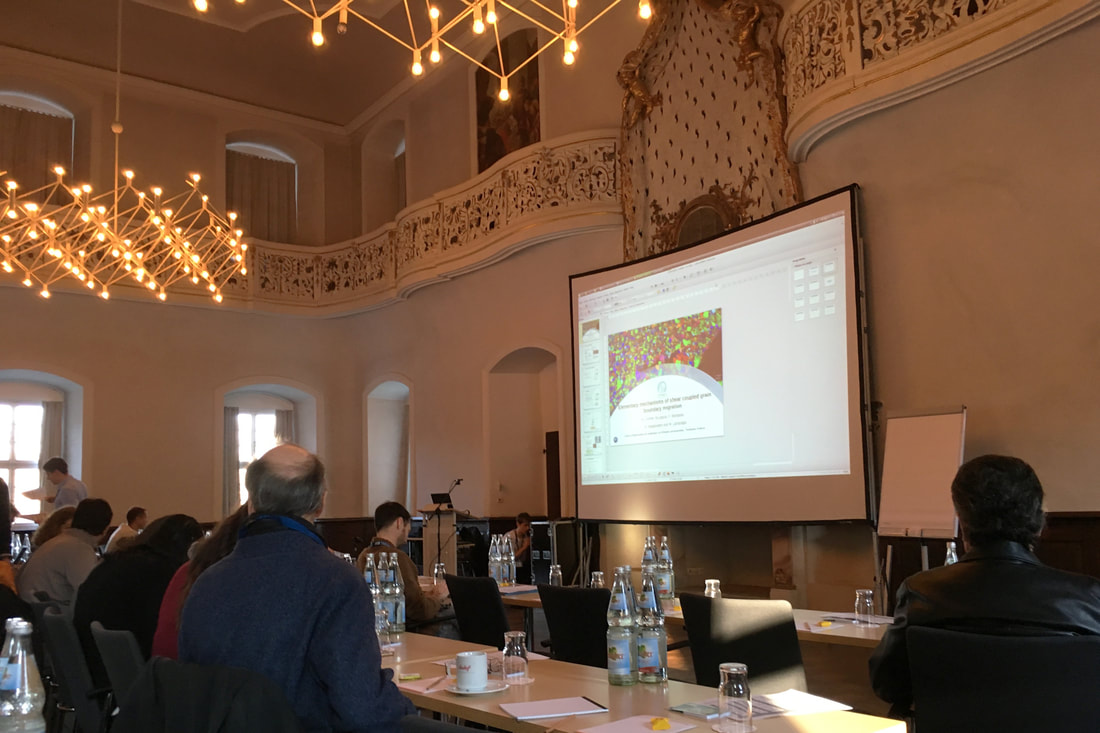|
Dr Andrew McBride and PhD student Chris Triantafyllou travelled to Schöntal, Germany, last week to present the latest work on the use of specific experimental techniques and how these can be effectively used in conjunction with crystal plasticity simulations in the context of cold-dwell fatigue of titanium alloys.
The workshop organised by the Karlruhe Institute of Technology (KIT) was held in the ex-monastery Kloster Schöntal and attracted leading figures in the field of dislocation modelling from all over the world with main focus on physical based continuum theories and simulations, but also featured comparisons with experimental work. Chris gave a presentation of how crystal plasticity is aiding his research on cold-dwell fatigue, explained how the model was calibrated and what our goals are by analysing x-ray diffraction (Synchrotron) results in order to deepen our understanding of this behaviour, as well as improve the plasticity model. Professor Paul Steinmann based at FAU in Erlangen, Germany and the University of Glasgow also gave a presentation on the current state and challenges in developing a physical based continuum theory of dislocations. Paul is the director of the Glasgow Computational Engineering Centre (GCEC) at the University of Glasgow and more information can be found here. |
Research
|
About us
|
|


 RSS Feed
RSS Feed